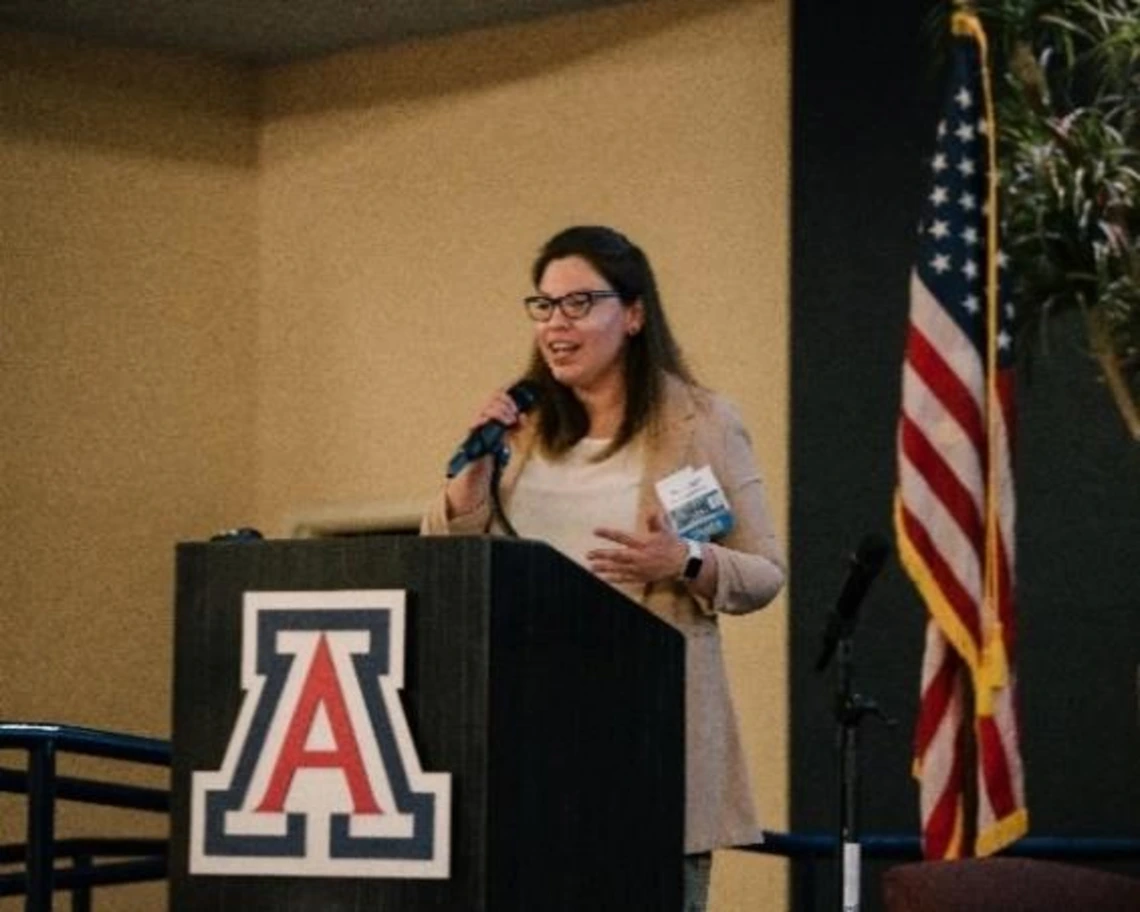Dr. Elia M. Tapia Sheds Light on Transboundary Aquifers at WRRC 2023 Annual Conference

Imagen: La Dr. Elia Tapia presentando en la Conferencia Anual WRRC 2023
Last June 12th, Dr. Elia M. Tapia delivered a compelling presentation at the WRRC 2023 Annual Conference, focusing on the critical issue of transboundary aquifers. In her talk, she highlighted the significance of groundwater as an invisible resource, emphasizing the urgent need for a deeper understanding and sustainable management of aquifers.
Dr. Tapia stressed that groundwater knows no borders, making it essential for nations to collaborate and share knowledge about these hidden resources. She underscored the importance of transboundary aquifer assessment to gain comprehensive insights into shared groundwater resources and promote sustainable management practices.
A key subject of her presentation was the U.S.-Mexico Transboundary Aquifer Assessment Program (TAAP), a joint effort between the United States and Mexico to evaluate shared aquifers. The TAAP's objective is to enhance knowledge regarding the mutually agreed-upon aquifers, the Santa Cruz, San Pedro, Mesilla, and Hueco Bolson aquifers shared between Arizona, Texas, and New Mexico in the United States, and Sonora and Chihuahua in Mexico.
Dr. Tapia also highlighted the WRRC-TAAP contributions, which include transboundary aquifer reconnaissance work, characterization of selected border communities, stakeholder engagement, and collaborative efforts identified through the TAAP Cooperative Framework. The team's efforts further encompass the development of water balance modeling tools to understand the effects of system changes, such as climate uncertainties and shifts in groundwater demand. Additionally, the WRRC actively participates in binational technical working meetings, publishes journal articles and reports, and presents its findings at regional, national, and international conferences. Furthermore, they organize forums and seminars to enhance knowledge about transboundary aquifers.
Dr. Elia M. Tapia concluded emphasizing the importance of identifying, mapping, assessing, and developing governance mechanisms for transboundary aquifer assessment. By ensuring the sustainability of these vital resources, nations can work collaboratively towards preserving and responsibly managing groundwater for the benefit of present and future generations.

